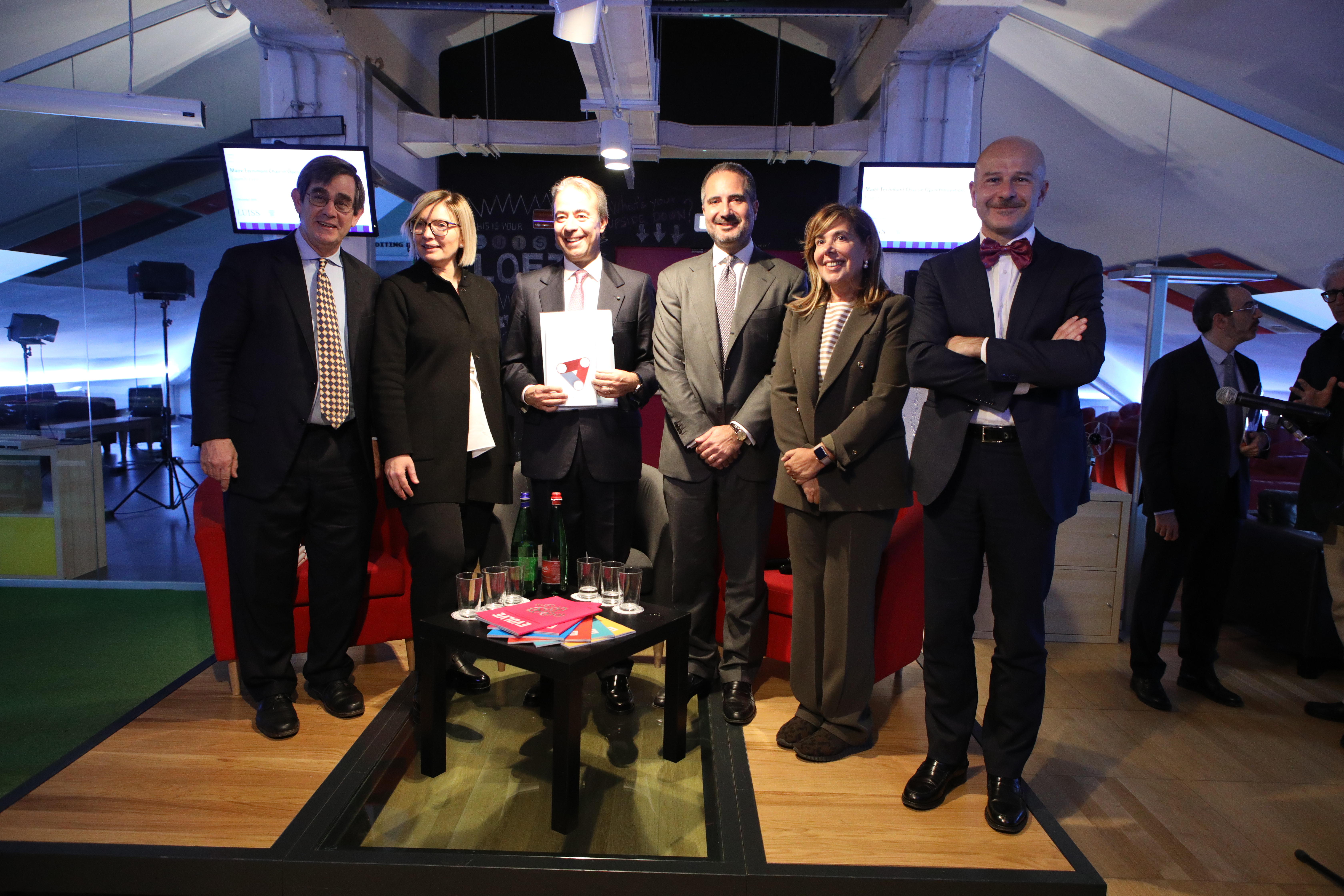
Tuesday December 3rd - The Maire Tecnimont Group presented the new chair in "Open Innovation" at the LUISS Guido Carli University, assigned to Professor Henry Chesbrough, Director of the Garwood Center for Corporate Innovation of the University of California at Berkeley and intellectual father of concept of "Open Innovation".
The chair represents the launch of a synergy strongly desired by Fabrizio Di Amato, Maire Tecnimont Chairman and Majority Shareholder and Andrea Prencipe, Dean LUISS.
The event was held at the LOFT Luiss on Monday December 2nd at 11am in Rome. Participating in the event were: AndreaPrencipe, Dean of Luiss Guido Carli, FabrizioDiAmato, Maire Tecnimont Chairman and Majority Shareholder, SimonaRomani, Consumer Behavior Professor at Luiss, HenryChesbrough, Professor at Luiss and University of California, Berkseley, PierrobertoFolgiero, Maire Tecnimont Group CEO, as well as a Luiss alumn, and MariaLatella, journalist of Il Messaggero, and moderator of the debate. At the end of the event a Q&A session involving the public, enriched by the concluding remarks of PaolaSeverino, Vice President of Luiss Guido Carli, was then opened.
The center of the panel discussion was the phenomenon of Open Innovation as a model of innovation, according to which companies not only use internal resources, but also utilize tools and technological skills that come from outside of the organization. This is topic known and widely debated within the scientific and professional management community, which needs further scientific investigation.
Chairman Di Amato commented: "The launch of this chair marks another concrete step of our Group towards Open Innovation, a Copernican revolution for companies in every industry. Today we need to have an open-minded approach: we have to move from a “closed” company to an “open” company. If innovation is based on the ability tochangemindsets, in order to take the challenge of digitalization and sustainability, we need tocreateanecosystem involving different stakeholders, open to "cross-fertilization" with universities, research institutes, companies, start-ups, finance, public authorities, incubators and accelerators.”
As noted by the Dean Prencipe, “the fundamental element of differentiation between Open Innovation and other forms of collaboration for innovation lies in the research for not obvious partnerships that can therefore offer knowledge, ideas, skills, as well as unconventional, unexpected, unthinkable and un-thought-of information. The vehicles and channels of transmission of these inconsistent and unexpected ideas are informal and simple; they travel through digital roads and via word of mouth."
Prof. Chesbrough, who has been assigned the chair, will launch a research project on the analysis of the principles of Open Innovation, through which companies and organizations will be able to pursue central goals in the social, economic and environmental sustainability fields. In fact, open innovation is a paradigm that radically changes the way we understand the dynamics of acquiring knowledge. In the words of Chesbrough, corporate innovation must therefore “treasure collaborations, ideas and external resources in a systematic way with respect to the classically understood corporate perimeter. From start-ups to the global market of ideas and patents, this model better illustrates how a company no longer needs to control, to the point of ownership, the innovation processes from beginning to end."